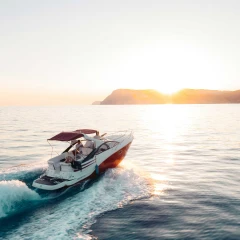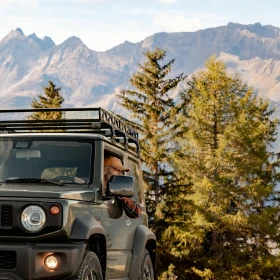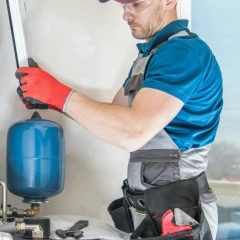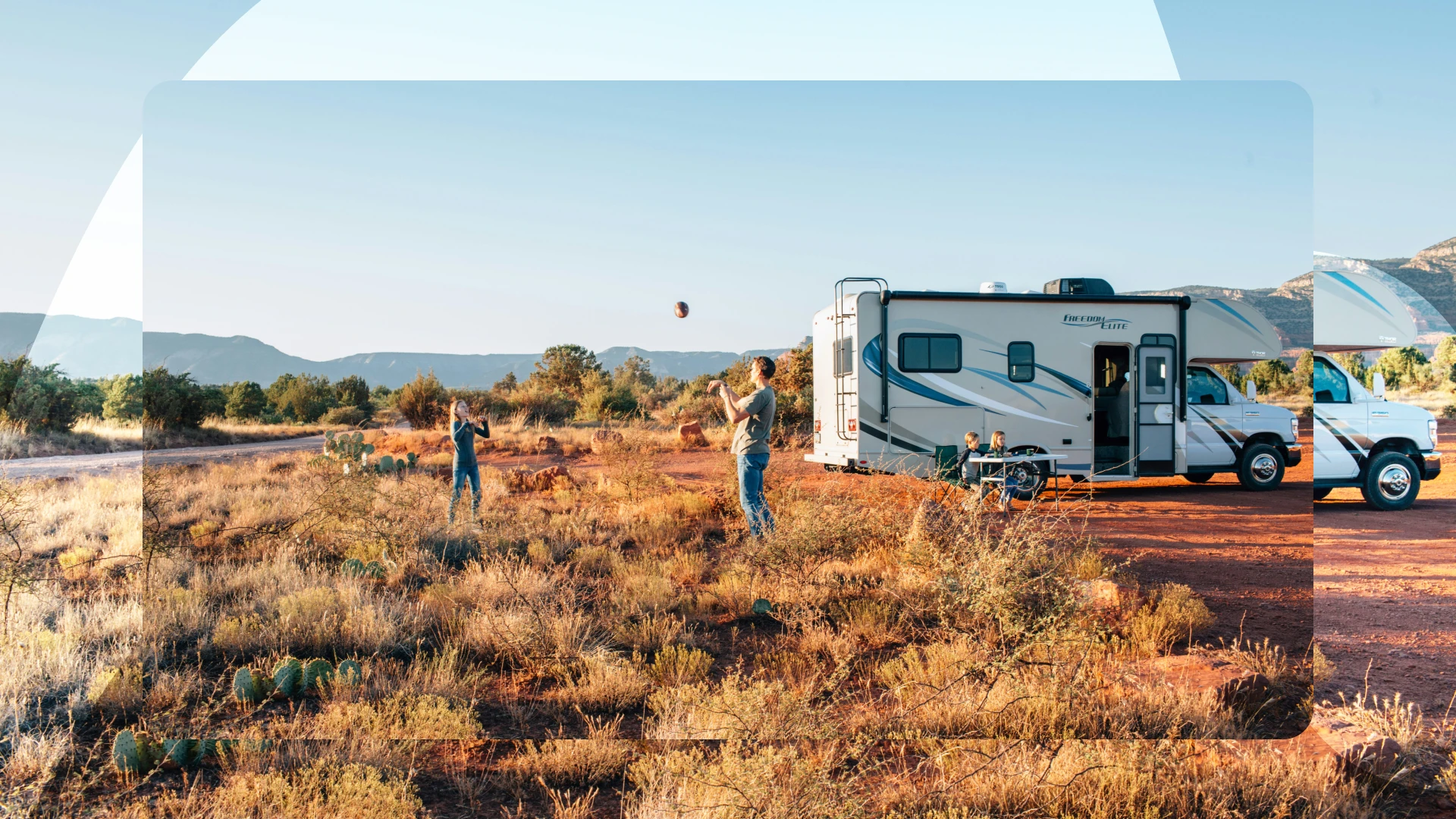













Planning to drive your RV into Mexico? Ensure you're covered with specialized Mexico auto insurance for RVs, crucial for legal travel.
Driving an RV into Mexico involves more than crossing a border. It also means entering a different legal and insurance environment.
Many RV travelers assume their U.S. or Canadian auto insurance offers protection in Mexico. This is one of the most common misconceptions travelers make. If you’re still unsure, here’s a clear answer to the question: “Do I need Mexico auto insurance?” However, this assumption is often incorrect.
Mexican law does not recognize foreign-issued auto insurance as valid proof of financial responsibility. A separate policy from a Mexico-licensed insurer is required for legal compliance. This means a separate Mexico-specific insurance policy is necessary for RVs operated within the country.
U.S. and Canadian auto insurance policies are not valid under Mexico law. Even if a policy includes some international travel coverage, it is not recognized by authorities in Mexico for legal or claims purposes.
Operating an RV in Mexico without a valid Mexico insurance policy may result in penalties such as fines, impoundment of the vehicle, or temporary detention under Mexican traffic law. These may include fines, impoundment of the RV, or temporary detention.
Mexico law applies to all foreign-plated vehicles, including RVs. Coverage must be active for the entire duration the vehicle is in the country.
The structure of insurance in Mexico differs from what travelers may be used to in the U.S. or Canada. This includes how liability is handled, how claims are processed, and how legal assistance is provided.
Key differences between U.S. and Mexico insurance:
Liability-only coverage is required by law in Mexico. It covers the cost of injuries or damage caused to other people or their property in an accident.
This type of policy does not cover damage to the RV itself. Liability limits on policies commonly range from $50,000 to $500,000 USD.
Travelers with older RVs or those who do not want extended protection for their own vehicle may choose this option.
Extended coverage includes liability protection and additional protection for the RV itself. This can include damage from collisions, weather events, vandalism, and theft.
Policies typically include deductibles—a specific amount that the policyholder is required to pay before the insurance covers the remaining cost.
This type of insurance is often selected for newer or higher-value RVs.
Theft protection covers loss of the RV if it is stolen while in Mexico. It also applies to items permanently installed in the vehicle.
Some policies include coverage for accessories or attached equipment. Theft risk varies depending on location and circumstances.
Tips for preventing theft:
Medical payments coverage helps pay for injuries to the driver and passengers after an accident. This is separate from liability coverage, which applies to others involved.
Legal assistance and bail bond services are often included in RV insurance policies for travel in Mexico. These services can help navigate legal situations following an incident.
Many policies also offer 24-hour support and English-speaking representatives. This support may be useful in emergencies or unfamiliar situations.
Class A, B, and C motorhomes are considered self-propelled vehicles. Mexico insurance policies classify them similarly to cars or trucks for coverage purposes.
Some policies apply restrictions based on the vehicle's weight or length. These restrictions vary by insurer and policy type.
Luxury or modified motorhomes may require additional review. This can include specialized coverage for custom installations or higher declared value.
Travel trailers are not self-propelled and rely on a tow vehicle. Insurance for the trailer is often connected to the policy covering the tow vehicle.
For coverage to apply, the trailer must be listed specifically on the policy. This includes providing the trailer's make, model, and value.
Contents coverage for travel trailers applies to personal belongings stored inside the trailer. This coverage is not automatic and varies by insurer.
Being in an accident while towing a trailer can add complexity to the claims process. If you’re unsure what to expect, read how Mexico insurance claims are handled after an accident to better prepare.
Fifth wheels follow similar insurance guidelines as travel trailers. Insurance is connected to the primary vehicle used for towing.
The towing vehicle must also carry a valid Mexico insurance policy. Coverage for the fifth wheel typically depends on the towing vehicle’s policy. If the towing vehicle is not insured under a valid Mexico policy, the fifth wheel may not be covered for liability or physical damage.
Towing requirements may differ from other trailers due to the hitch design and size of the unit. Some policies specify additional conditions based on these factors.
Towed vehicles such as dinghies, ATVs, and motorcycles are not always included in a standard RV insurance policy for travel in Mexico. If a vehicle is being towed behind an RV, it may require its own Mexico insurance certificate. It is possible that each towed vehicle must be listed on its own separate Mexico insurance certificate unless explicitly stated otherwise by the insurer. This is a key legal requirement. For a broader look at Mexico’s insurance laws and what’s considered valid coverage, check out our legal overview of Mexico auto insurance requirements before departure.
For each towed vehicle, you'll typically need:
Policies vary, so it’s essential to consult the policy and confirm which vehicles are covered and what documentation is accepted by the insurer.
RV insurance policies for Mexico often include roadside assistance. This service may include towing, fuel delivery, lockout assistance, and tire changes. Availability of these services can vary between urban and remote areas.
To prepare for emergencies, carry a printed list of emergency contacts and insurance hotlines. A basic tool kit and first aid kit are also helpful to store in the RV. Identifying nearby service centers before departure and noting their locations along the travel route can save time in an emergency.
RV insurance premiums for Mexico are based on several factors:
Higher-value RVs and longer trips typically result in higher premiums. Choosing a higher deductible can reduce your premium but increases your out-of-pocket cost in a claim.
Seasonal or timing-based discounts may be available—such as reduced rates for off-peak travel periods.
Bundling policies may result in cost savings, subject to underwriting and eligibility requirements.
Liability limits determine the maximum amount an insurer will pay for damage or injury caused to others. Selecting higher liability limits increases the premium but offers more protection.
For RV travel in Mexico, limits of $300,000 USD or more are commonly recommended. This level of protection may better align with potential claims following a serious accident.
Always consult your policy or speak with an insurance representative to determine what liability limits are appropriate for your travel plans.
Before traveling into Mexico with an RV:
At the border, officers may ask for:
Driving laws in Mexico include specific rules for RVs, especially regarding vehicle weight, length, and speed. Toll roads and checkpoints are common, and drivers should keep documents accessible and comply with all requests from local authorities.
Plan your route in advance to avoid restricted areas and choose roads that accommodate larger vehicles. Toll roads often offer better conditions for RV travel.
Insurance for RVs operating in Mexico is not optional—it’s a legal requirement. U.S. and Canadian insurance policies do not satisfy this requirement.
A Mexico-specific policy from a licensed insurer helps ensure compliance and protects against real-world risks like accidents, theft, and legal situations.
Still researching your options? This post breaks down what’s covered, what’s not, and why Mexico auto insurance is non-negotiable for any type of vehicle.
Sun Coast General Insurance offers policies underwritten by Mexico-licensed carriers and structured to meet legal compliance requirements for RV travelers in Mexico.
Don’t risk your journey—secure comprehensive Mexico auto insurance for your RV today. Stay protected and enjoy peace of mind. Get a Quote from Sun Coast General Insurance today.
